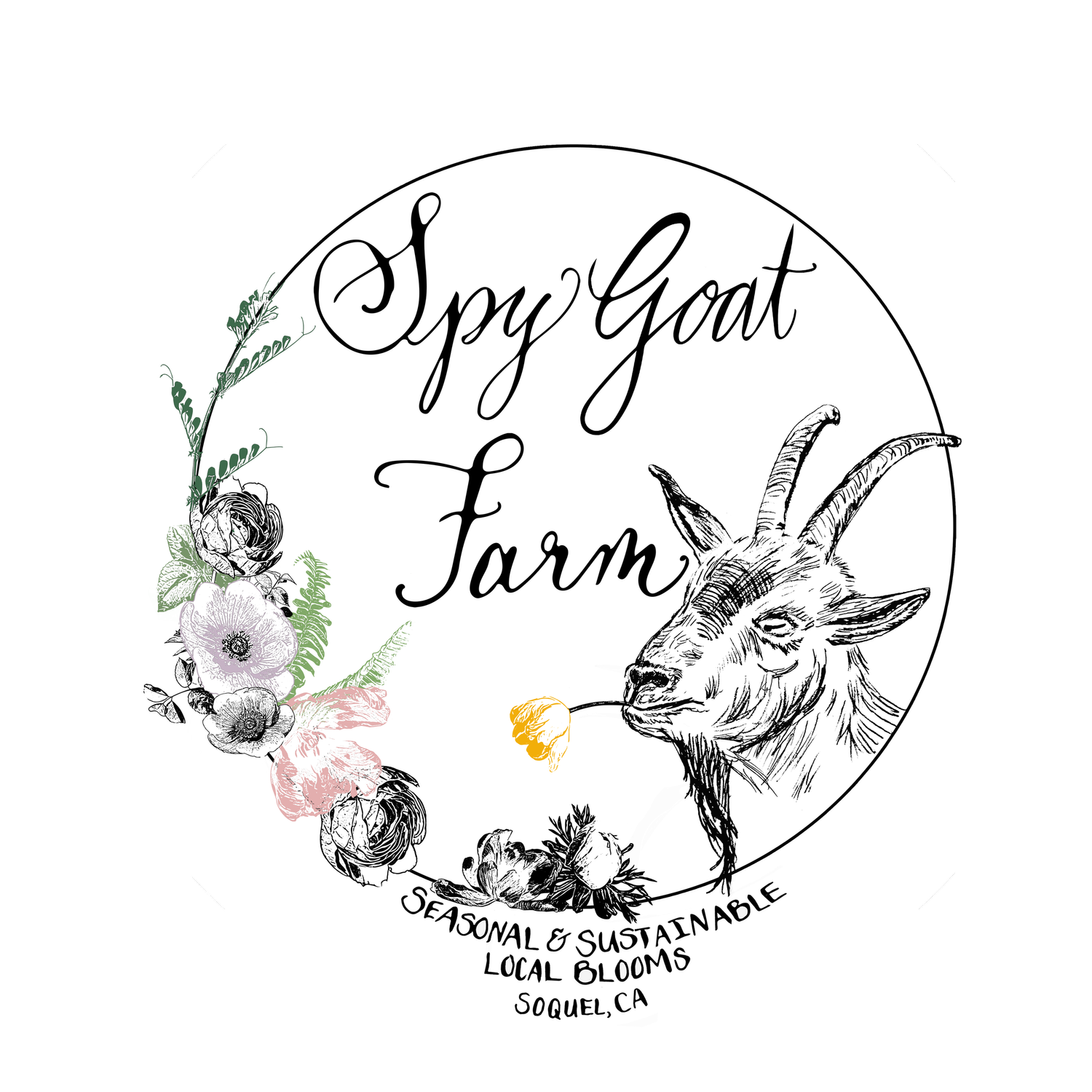



Why Spy Goat?
Spy Goat Farm came to be in 2020, a direct result of the Covid lockdown and the premature birth of my granddaughter. While I have always grown flowers on our three acres, it took a dramatic re-ordering of life to realize the potential of what could be.
For many years, we had a herd of pygmy goats that kept the pasture weeds to a minimum. The first three of them traveled from Malibu in a dog crate. One of my husband’s clients was the producer of the James Bond movies. His home had been spared in a fire that destroyed all others on his hillside. The reason? His herd of goats. He generously offered a few to us.
Within a few years we had thirty. Skittish and aloof, they showed no affection for us but were always willing to follow whoever carried the bucket of grain and armful of alfalfa hay. That all changed with Ruby - a tiny munchkin whose mama left her for dead in the field after birthing her. Following the sound advice from our local feed store, we brought the kid inside and kept her warm in a parrot brooder on our kitchen counter. Regular feedings of goat milk purchased from a neighbor and some injections of penicillin revived her in no time. Imprinting on us, we had an “inside goat.” Only when she began jumping on tables and devouring mail, did we find it necessary to reintroduce her to the herd. She resisted mightily at first, taking every opportunity to find the tiniest of holes in the fence through which she could escape and return to us. Eventually, she chose to remain with the others and in time had her own babies that she tended to with the greatest of care and affection.
Besides being a flower farmer, I am also a photographic artist and an educator. For the past decade, I had been making regular trips to Louisiana, adding to my documentary project, Louisiana, Purchased – images about the ways in which the petrochemical industry within the state has compromised the health and well-being of communities of color.
The shelter-in-place order imposed by Santa Cruz County went into effect on March 16, 2020. The following morning (Saint Patrick’s Day) my granddaughter was born 10 weeks premature. Because I was present for her birth, I was allowed daily access to the Neo-natal Intensive Care Unit at our local hospital. Watching her weight slowly climb from an ounce under three pounds, I cherished each visit and came to an internal reckoning that there would be no more traveling in the foreseeable future.
For the first several months, I found myself up at 4:00 am for the baby’s early morning feeding. After she finished and was sleeping against me, I found myself tuning in to various farming and gardening videos on YouTube. The last of our goats had passed on and I now wanted to invest my creative energies into working with our land.
As a long-time vegan, I committed to enriching the soil with amendments that were not derived from animal sources. But the hypocrite in me was not troubled in the least by exploiting worms for their poop. I’m a member of the Slow Flowers movement whose tenets include sustainable growing practices, domestic production that seeks to promote relationship between grower and consumer with an emphasis on seasonable production. I’m interested in no-till farming practices but the degree of slope that angles our property down into our valley made it necessary to bring in a tractor and terrace. And the intense gopher pressure that exists here is such that raised beds have been the most logical route. I have been fortunate to have studied with some wonderful flower farmers including the Floret farmer/florist course taught by Erin Benzakein, Jennie Love of Love ‘n’ Fresh Flowers, & Lisa Zeigler who runs the Gardener’s Workshop.




